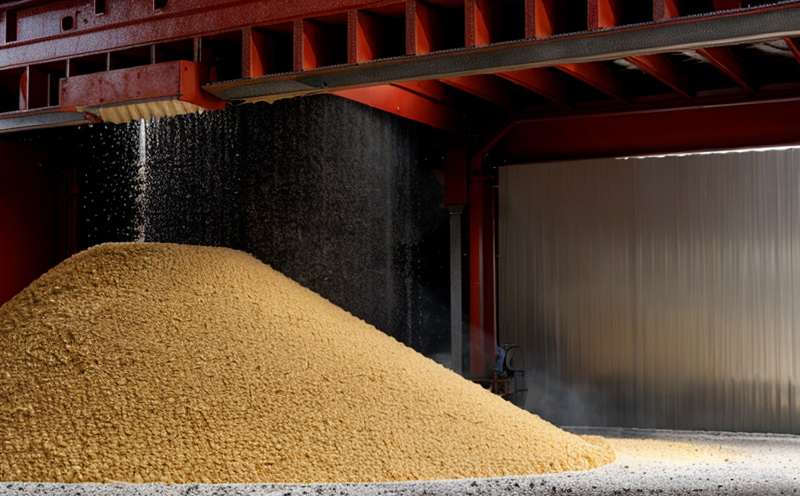Moisture absorption during material processing
The Importance of Moisture Absorption Testing during Material Processing Unlocking the Secrets to Materials Optimization
In todays fast-paced manufacturing landscape, materials play a crucial role in producing high-quality products. From textiles and composites to coatings and adhesives, the properties and performance of these materials can make or break the success of a product. One critical factor that significantly impacts material behavior is moisture absorption. This phenomenon occurs when materials absorb water from their surroundings, leading to changes in weight, size, strength, and other physical properties. Understanding and controlling moisture absorption during material processing is essential for businesses seeking to optimize their products and processes.
What is Moisture Absorption during Material Processing?
Moisture absorption testing involves measuring the amount of moisture absorbed by a material under controlled conditions. This laboratory service provided by Eurolab helps manufacturers identify potential issues with their materials, ensuring they meet performance standards and regulatory requirements. During processing, materials can absorb moisture from various sources, including air, water, or even the manufacturing equipment itself. Excessive moisture absorption can compromise material properties, leading to defects, reduced shelf life, and ultimately affecting product quality.
The Benefits of Moisture Absorption Testing during Material Processing
Conducting regular moisture absorption testing during material processing offers numerous benefits for businesses
Improved Product Quality By identifying potential issues with materials, manufacturers can optimize their formulations, reducing the likelihood of defects and ensuring consistent product quality.
Enhanced Process Efficiency Understanding moisture absorption patterns helps companies refine their manufacturing processes, streamlining production, and minimizing downtime due to material-related issues.
Cost Savings Early detection of material problems enables businesses to make informed decisions about inventory management, reducing waste, and saving resources.
Compliance with Regulatory Requirements Moisture absorption testing ensures that materials meet industry standards and regulatory requirements, protecting companies from potential fines or reputational damage.
Additional advantages include
Better Material Selection Manufacturers can choose the most suitable materials for their applications based on their moisture absorption characteristics.
Reduced Risk of Product Failure By understanding material behavior under various conditions, businesses can design products that are more resistant to environmental factors.
Increased Customer Satisfaction High-quality products resulting from optimized material processing contribute to improved customer satisfaction and loyalty.
How Does Moisture Absorption Testing during Material Processing Work?
At Eurolab, our expert technicians conduct thorough moisture absorption testing using state-of-the-art equipment. The process typically involves the following steps
Material Sample Preparation Representative samples of the material are prepared for testing.
Moisture Absorption Measurement Samples are subjected to controlled humidity conditions, and the amount of moisture absorbed is measured over a specified period.
Data Analysis Results are analyzed to identify patterns, trends, and correlations between material properties and moisture absorption.
Common Applications of Moisture Absorption Testing during Material Processing
Moisture absorption testing has various applications across industries
Textiles Understanding moisture absorption helps manufacturers develop fabrics with improved water resistance, breathability, and durability.
Composites Manufacturers can optimize the formulation of composite materials for specific applications, taking into account their moisture absorption characteristics.
Coatings and Adhesives Moisture absorption testing ensures that these materials meet performance standards, reducing the risk of defects or failure.
Frequently Asked Questions (FAQs)
What types of materials can be tested?
Various materials can be tested, including textiles, composites, coatings, adhesives, and other polymers.
How long does a moisture absorption test take?
The duration of a test varies depending on the material and testing conditions, typically ranging from a few hours to several days or even weeks.
What are the benefits of conducting regular moisture absorption testing?
Regular testing helps manufacturers optimize their materials, processes, and products, reducing defects, improving efficiency, and enhancing product quality.
Can Eurolab provide customized testing services for specific applications?
Yes, our team can develop tailored testing programs to meet the unique requirements of your business.
Conclusion
Moisture absorption during material processing is a critical factor that must be understood and controlled by manufacturers seeking to optimize their products and processes. By leveraging the expertise and resources provided by Eurolab, businesses can unlock the secrets to materials optimization, reducing defects, improving efficiency, and enhancing product quality. Dont let moisture-related issues compromise your products; choose Eurolab for reliable and accurate moisture absorption testing services.




